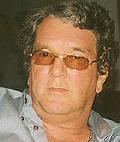 非洲國家賴比瑞亞近14年來飽受內戰戰火摧殘,至今已造成25萬人喪生。一名荷蘭籍商人高文侯(Gunns Kouwenhoven)涉嫌販售武器給非洲賴比瑞亞,以換取獲利不斐的伐木特許權;此案5月下旬於荷蘭海牙國際法庭審理終結,現正靜候法官作出裁決。為了審理此案,在荷蘭碧翠絲女王肖像俯瞰下的挑高法庭中,動用了三位法官耗時近五個禮拜進行馬拉松式審議,庭訊過程中巨細靡遺地披露了內戰細節。
非洲國家賴比瑞亞近14年來飽受內戰戰火摧殘,至今已造成25萬人喪生。一名荷蘭籍商人高文侯(Gunns Kouwenhoven)涉嫌販售武器給非洲賴比瑞亞,以換取獲利不斐的伐木特許權;此案5月下旬於荷蘭海牙國際法庭審理終結,現正靜候法官作出裁決。為了審理此案,在荷蘭碧翠絲女王肖像俯瞰下的挑高法庭中,動用了三位法官耗時近五個禮拜進行馬拉松式審議,庭訊過程中巨細靡遺地披露了內戰細節。
高文侯被起訴的罪行包括違反荷蘭戰爭法,並違反聯合國在2001-2003年間對賴比瑞亞所實施的武器禁運制裁。
所謂的「血腥木材」交易指的是提供武器給效忠前賴比瑞亞總統泰勒(Charles Taylor)的民兵。泰勒在位之時發動長達數年的流血衝突,藉以鞏固政權。據稱高文侯因此得到砍伐林木特許權的政治酬庸。
高文侯案審訊過程中,起訴書指稱他是個貪得無厭且工於心計的斂財份子,刻意討好前總統泰勒,意圖為他的公司-皇家伐木公司(Royal Timber)和東方伐木公司(Oriental Timber Corporation)取得特權以便擴張商業利益,檢察官指控他走私武器進入賴比瑞亞給前總統泰勒的民兵部隊。
曾任職高文侯木材公司的離職員工出面指證,當初他們曾經被徵召為民兵前往前線作戰。他們陳述可怕的罪狀,坦承犯下強姦、斬首等罪狀,並將人活活燒死在他們的小屋中。
檢察官指出,泰勒2003年下台後,高文侯將事業活動遷往剛果首都布拉薩,再度坐實了檢察官的主張──他藉由戰爭牟取驚人的暴利。他們指出「他並非是個在錯誤的時間及地點經商的商人,而是一位如果沒有政府和軍事衝突,將無法在如此腐敗的環境中壯大自己事業的商人」。
在審訊過程中,高文侯自始至終堅稱他是無辜的。他對法官陳述說,1990年代期間,他的生活週遭並未曾聽聞太多關於血腥內戰的消息,只一如常人知悉那兒有偶發的暴行。高文侯辯護律師威斯基(Inez Weski)則設法將她的委託人包裝成「在不同勢力間運作衝撞,試圖顛覆泰勒政權」的殉道者。
 The trial of Guus Kouwenhoven, a Dutch businessman accused of trading weapons for lucrative timber concessions in war-torn Liberia, officially closed in The Hague last week, pending a verdict from judges. In a high-ceilinged courtroom overlooked by a large portrait of Queen Beatrix of the Netherlands, the three judges have spent the last five weeks hearing detailed evidence about the 14-year civil war that wracked Liberia, leaving some 250,000 people dead.
The trial of Guus Kouwenhoven, a Dutch businessman accused of trading weapons for lucrative timber concessions in war-torn Liberia, officially closed in The Hague last week, pending a verdict from judges. In a high-ceilinged courtroom overlooked by a large portrait of Queen Beatrix of the Netherlands, the three judges have spent the last five weeks hearing detailed evidence about the 14-year civil war that wracked Liberia, leaving some 250,000 people dead.
Kouwenhoven is accused under Dutch law of war committing war crimes and violating the United Nations arms embargo that was in place against Liberia in 2001-03.
His so-called "blood timber" trade is said to have provided weapons for militias loyal to former Liberian president Charles Taylor, who fought his way to power and presided over years of conflict. In return, Kouwenhoven allegedly received logging concessions.
During the Kouwenhoven trial, the prosecution painted him as a money-grubbing wheeler-dealer who cosied up to Charles Taylor to advance his business interests. In exchange for privileges for his companies – the Royal Timber Company and Oriental Timber Corporation - prosecutors say he smuggled weapons into Liberia for Taylor's militias.
There were many testimonies from people who said that, while employed by Kouwenhoven's timber companies, they went to the front lines to fight as members of militias. They told horrific tales of crimes they had committed such as rape, decapitation, and burning people alive in their huts.
To support their claim that he was a war profiteer, prosecutors pointed to the fact that he moved his business activities to Brazzaville after the fall of Taylor in 2003. "He is not a businessman who was in the wrong place at the wrong time but a man whose affairs flourished in an environment of corruption, failing government and armed conflict," they said.
Throughout his trial, Kouwenhoven insisted he was innocent. He told the judges he did not hear much about the bloody civil war while it was going on around him in the 1990s, and was only aware in a general sense that atrocities were sometimes committed. Defense lawyer Inez Weski tried to cast her client as someone who had been "crushed between the different forces working to remove the regime of Charles Taylor."



